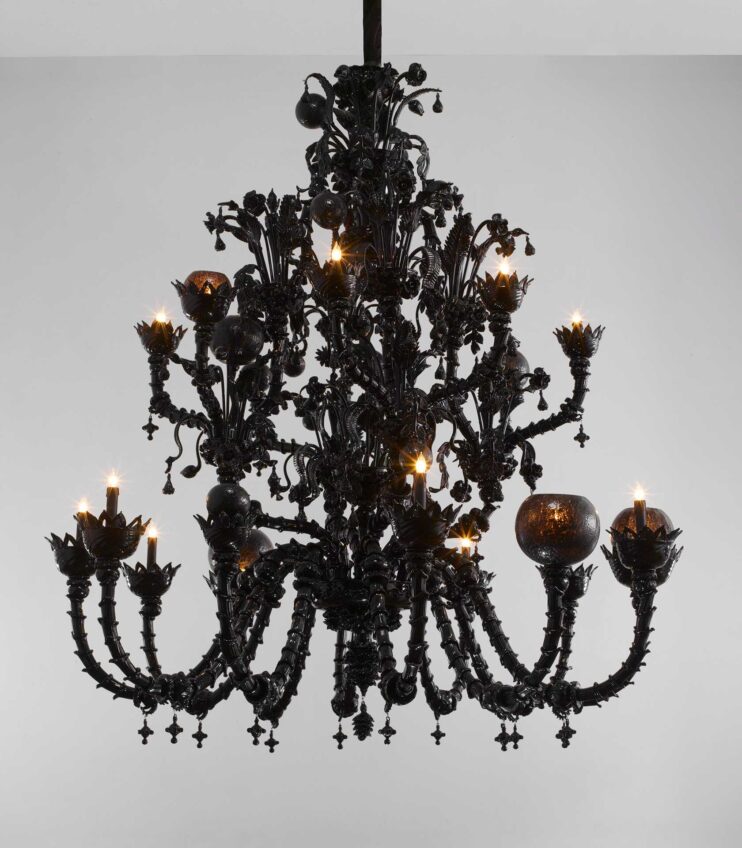Greek tragedy gets an update in Apollinaire Theatre’s bilingual production of ‘The Suppliant Women’

There is nothing new under the sun and that includes women’s rights and migrants seeking asylum. Both issues are currently at the forefront of news headlines and political discourse. They were also top of mind 2,500 years ago for the Greek dramatist, Aeschylus, when he wrote the tragic play “The Suppliants.”
“The Suppliants” follows a chorus of women, known as Danaids, from Egypt to Greece. The women are seeking refuge in Argos after fleeing a forced marriage to their Egyptian cousins. Granting asylum to the Danaids is technically the right thing to do but taking them in could start a war with Egypt. The Argive leader, Pelasgus, takes a democratic stance and lets his citizens decide the fate of the suppliant women.
The story is given new life in David Greig’s adaptation for modern audiences, “The Suppliant Women,” directed by Danielle Fauteux Jacques of Chelsea’s Apollinaire Theater this August. In an interview for Edinburgh’s Lyceum Theatre, Greig describes the play as “a piece of theatrical archaeology.”
On a phone call Fauteux Jacques says, “The play is incredibly relevant. It’s about women’s bodily autonomy in a time in the U.S. when that is obviously under attack. And it’s about the plight of refugees which is also a very contemporary issue.”
Fauteux Jacques along with actress Paola Ferrer say they adapted Greig’s play for bilingual audiences. According to the U.S. Census Bureau, 67% of Chelsea’s population is Latinx and 71% of households in the city speak languages other than English at home. Fauteux Jacques says making everyone in the community feel welcome is a priority for the creative team.
She says, “We work to make the play intelligible in both languages [English and Spanish] so that even if you only understand one language, you’re still fully able to follow the storyline and what’s happening on stage.”
Ferrer points out that Apollinaire has produced free outdoor summer programs for more than two decades that always incorporated elements of Spanish. Previously, plays would be performed in English one night and Spanish the other night and would switch until the end of a run. Although it was an equitable solution, it was also mentally taxing on the performers. Now scripts are adapted for bilingual audiences and heavily rely on visuals, dancing, singing and staging.
Fauteux Jacques says “‘The Suppliant Women’ has such strong musical and visual elements that the story can be told in a way that transcends language.”
The play has a large cast including the Danaid chorus of 50 women. These women are made up of experienced and new actors from in and around Chelsea, keeping in line with Apollinaire’s ethos of community. Ferrer says making Chelsea a destination for arts and entertainment to revitalize the city after the COVID-19 pandemic is especially important to her. Chelsea was the epicenter of the outbreak in Massachusetts in the spring of 2020.
Ferrer hopes the play will allow people to reflect on humanity and moral dilemmas. She says, “What do we do to help people in need? We see asylum as a moral imperative. But there’s a place where the rubber meets the road.” She continues, “What happens when we cannot protect them? How much security can we provide before we compromise our own safety? How do we navigate that difficult space in the middle?”
Free performances of “The Suppliant Women” are Fridays and Saturdays Aug. 2-17 at Port Park in Chelsea, Massachusetts. The pre-show performance starts at 6 p.m. and the show begins at 7:30 p.m.







